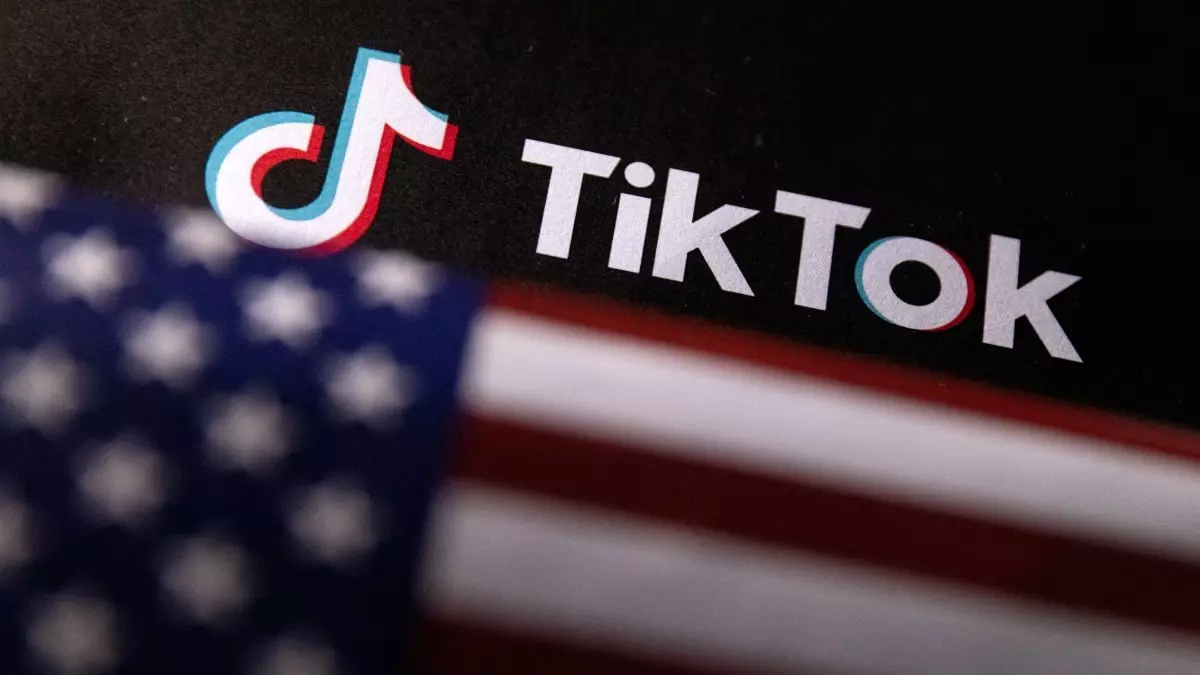In a series of unexpected twists, TikTok made its return to the app stores of major tech players Apple and Google on Thursday, following an incomplete assurance from then-President Donald Trump about the app’s continued presence in the U.S. This comes against a backdrop of rising national security concerns regarding the app’s Chinese ownership by ByteDance. The complexities of this situation underscore not just TikTok’s immediate fate, but also the broader implications for foreign-owned applications operating in American markets.
TikTok, which has seen unprecedented growth and boasts nearly half of the U.S. population as users, encountered significant roadblocks when it was briefly removed from app stores last month. A new law, set to take effect on January 19, highlighted national security issues and mandated ByteDance either sell TikTok’s U.S. assets or face an outright ban. Promptly thereafter, Trump signed an executive order that provided a temporary reprieve, delaying enforcement of the ban by a generous 75 days. This decision allowed TikTok to resume its services momentarily, albeit with uncertainty hanging over its operational future.
Despite TikTok’s reactivation, the saga was far from over. Google and Apple opted to keep the app off their platforms, presumably in anticipation of clearer legal protections against potential penalties. As digital marketplace stewards, these tech giants are acutely aware of the risks associated with hosting a service embroiled in controversy. Trump’s assurance that neither company would incur fines for the app’s continued availability appears to have been a necessary yet insufficient factor for resuming TikTok’s place in the app stores, especially given the increasingly scrutinized nature of Chinese tech firms within the U.S. market.
Analysts suggest that the hesitancy exhibited by these tech behemoths reflects broader concerns regarding regulatory compliance and market responsibility. Given TikTok’s prominence as the second most downloaded app last year in the U.S., their cautious approach might be seen as prudent, yet it also hints at the uncertain regulatory landscape requiring careful navigation.
The legal environment surrounding TikTok shifted significantly when President Joe Biden signed legislation in April, which broadly aimed to address national security concerns about foreign apps. This law reflects a growing apprehension in the U.S. regarding data privacy and surveillance—considerations that have caused alarm over potential foreign interference in American life through technology. Unlike past instances of scrutiny, which often targeted specific cases, the government’s ability to ban or sell foreign-owned apps creates a new precedent and potentially expands the scope of corporate responsibility.
This environment has prompted speculation about who might emerge as TikTok’s potential buyers amid discussions involving political figures like Trump, who has reportedly engaged with multiple parties interested in acquiring the platform. Valuations of TikTok suggest a staggering worth upwards of $50 billion, indicative of its immense popularity and rooted user base. This level of interest and valuation signifies that despite the political turbulence, TikTok remains a digital asset of considerable value in the social media market.
The Road Ahead
The ultimate fate of TikTok hangs in the balance, with the current 75-day deadline creating a sense of urgency for decisive action. Trump’s inclination to possibly extend this deadline suggests a willingness to further stabilize the app’s operations while negotiating terms for its future. As users and stakeholders alike await clarity, the future landscape for TikTok in the U.S. remains precarious.
The situation serves as a reminder that in the digital age, the consequences of national security issues extend far beyond traditional geopolitics; they infiltrate everyday technology consumption. As TikTok attempts to navigate through these turbulent waters, the implications of its journey will undoubtedly reverberate across the tech landscape, influencing future legislation and the fundamental structure of social media governance in America and beyond. Only time will reveal whether TikTok can secure its presence in the U.S. or whether it must seek new shores to continue its narrative of success.

